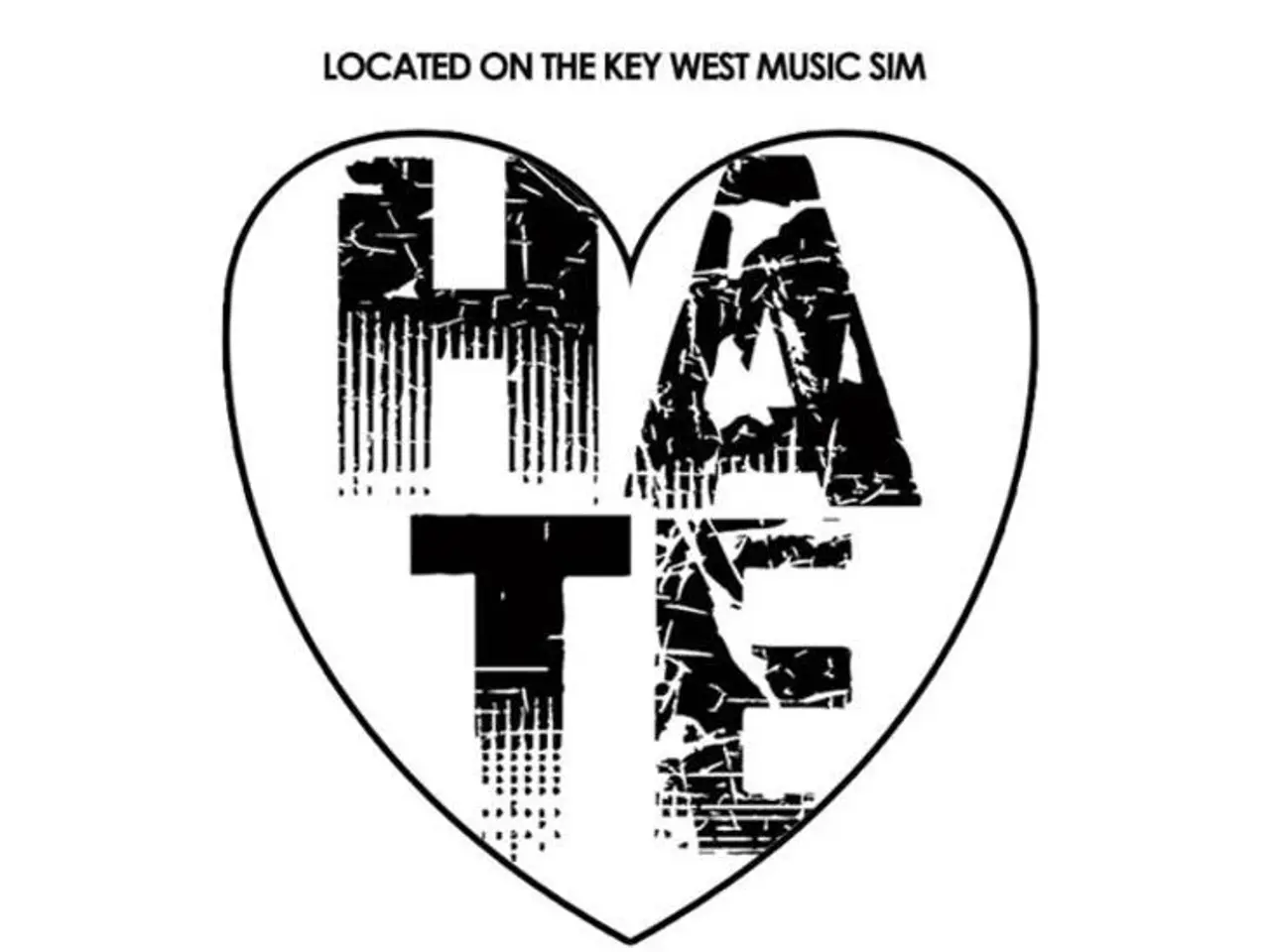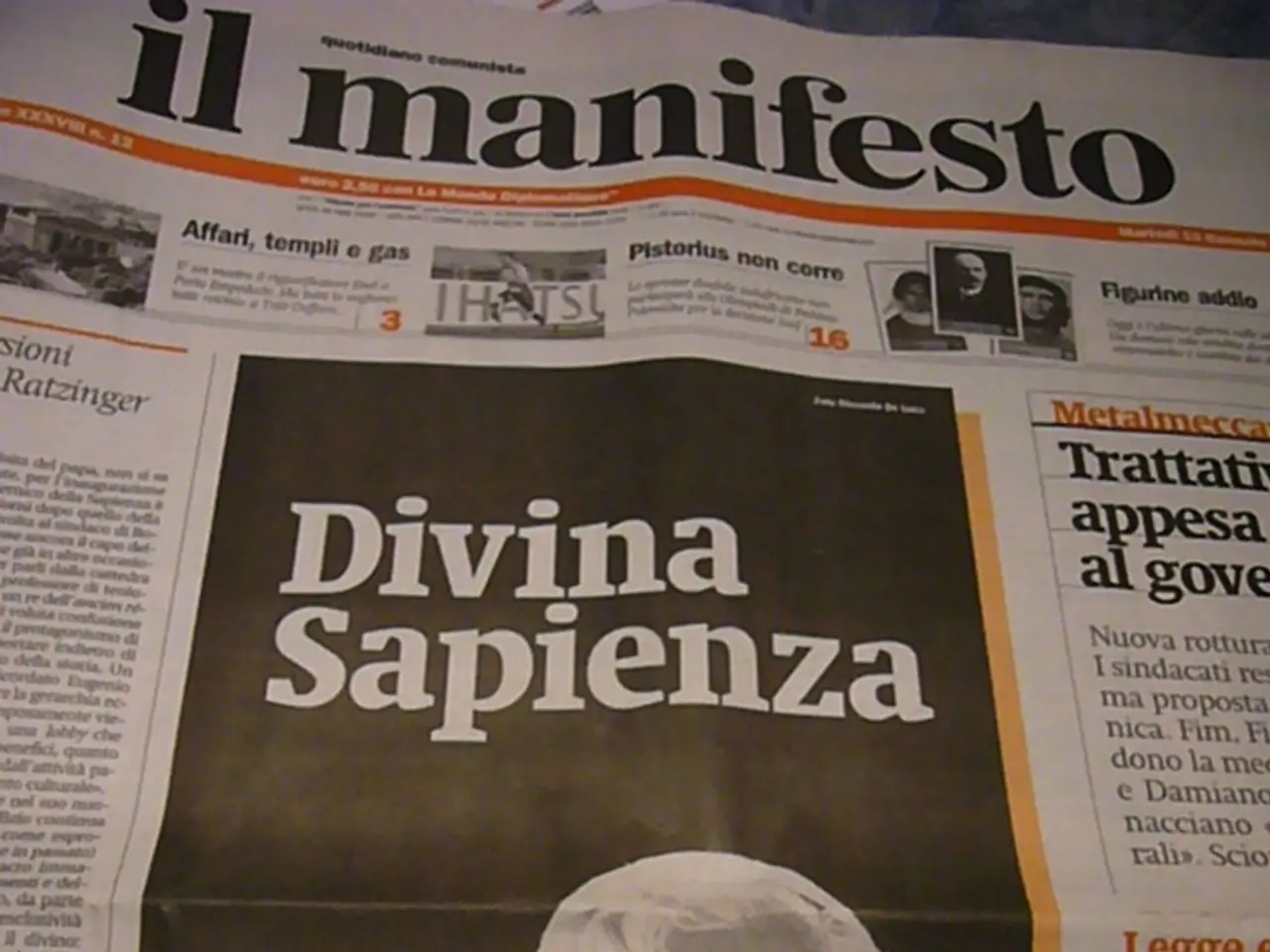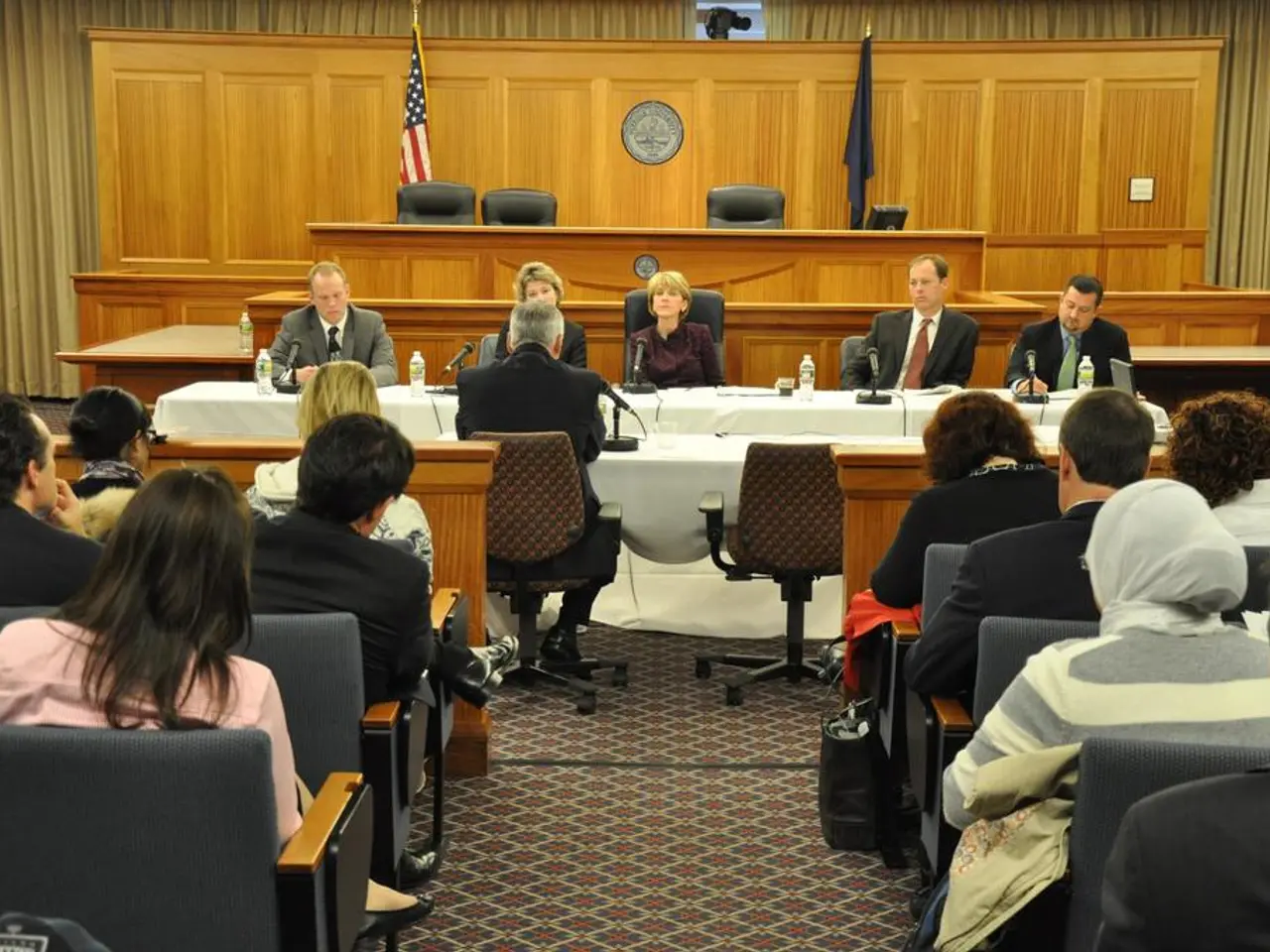Landtag Grants Limited Group Status to FDP in Parliament
Parliament grants party status to FDP within Legislative Assembly - The legislative body determines the legislative standing of the FDP within the legislative body.
In the Landtag of Mecklenburg-Vorpommern, a first-of-its-kind happening has taken place as a party is granted limited group status. The votes from the ruling factions of SPD and Die Linke, along with independent deputies, decided to introduce a new category in the parliamentary business of the state. The Landtag thus adheres to the request of the three remaining FDP deputies, René Domke, David Wulff, and Barbara Becker-Hornickel, to be recognized as a group with restricted privileges in the future.
This means that the FDP politicians retain some rights to participation in certain parliamentary committees, although they will not hold voting rights. The speaking times in the plenary session are extended compared to individual independent deputies. The funds for parliamentary work will be reduced. Instead of 54,000 euros per month, it is said that the FDP will receive around 21,600 euros. This will also significantly reduce the staff of the parliamentary employees of the FDP.
According to the state constitution of Mecklenburg-Vorpommern, at least four deputies are required for a faction, whose rights and duties are clearly defined. The FDP had received 5.8 percent of the votes in the 2021 state election and entered the parliament with five deputies. With the departure of two of its members, the FDP no longer meets this requirement.
TheAfD, CDU, and The Greens reference the state constitution and the rules of procedure of the Landtag and vote against the temporary special regulation for the current legislative period.
- Landtag
- FDP
- Mecklenburg-Vorpommern
- Schwerin
- SPD
- Die Linke
Background:The Landtag granting limited group status to the Free Democratic Party (FDP) signifies a unique situation that boasts both political and procedural ramifications. The decision highlights the ever-evolving political landscape of the Landtag in Mecklenburg-Vorpommern.
Context of FDP’s Limited Group Status:
- In the 2021 Landtag election, the FDP reclaimed their seat in the Landtag following a hiatus with approximately 6% of the vote[1].
- While the FDP boasts enough seats to form a parliamentary group, they will only receive restricted privileges instead of the full range of benefits granted to larger groups.
Implications of Granting Limited Group Status:
- Limited Influence: With restricted group status, the FDP's ability to influence legislative processes might be compromised due to fewer rights regarding participation in parliamentary committees, speaking time allocations, staffing, and funding compared to full parliamentary groups.
- Recognition but Restriction: Despite the reduced role relative to larger parties, the status acknowledges the FDP's presence in the Landtag's operations and provides them some procedural rights.
- Political Positioning: Given that the SPD and Die Linke established a coalition government, focusing on a new departure in policy alignment[1], the FDP's limited status may suggest reduced leverage in the legislature due to the coalition’s dominance.
Rules Governing Group Status in the Landtag:
- The Landtag's rules allow for the formation of parliamentary groups based on the number of seats won, but there may be additional criteria for full rights.
- Parliamentary groups typically are endowed with privileges such as the right to submit motions, hold speaking turns during debates, appoint members to committees, and receive public funding or staff support.
- Groups with restricted rights may experience reduced privileges compared to full parliamentary groups or have agreed to tailored conditions that decrease their influence within the Landtag.
- The precise rights and limitations are defined in the Landtag’s rules of procedure (Geschäftsordnung), which steer the conduct and organization of parliamentary groups.
In Conclusion:
The Landtag's decision to grant limited group status to the FDP signals a formal recognition of the party in the legislature but with fewer privileges compared to larger parties. This setup affects the FDP's capacity to participate fully in parliamentary work, partly because of the technical rules governing group formation and predominantly due to political dynamics within the Landtag[1].
There is no specific data regarding the exact rights restricted for the FDP or unique procedures specific to this limited group status that were found in the search results, but the general consensus is that restricted rights scale back parliamentary group functions, while still acknowledging the party as a group in the Landtag.
The Commission may consult on the implications of the FDP's limited group status in policy-and-legislation, as it pertains to the reduced influence and rights of the FDP in the Landtag of Mecklenburg-Vorpommern, given the unusual political scenario. Conversely, general news outlets may report on the Landtag's decision, highlighting the unique circumstances surrounding the limited group status granted to the FDP and its impact on the party's role in the parliamentary business.




